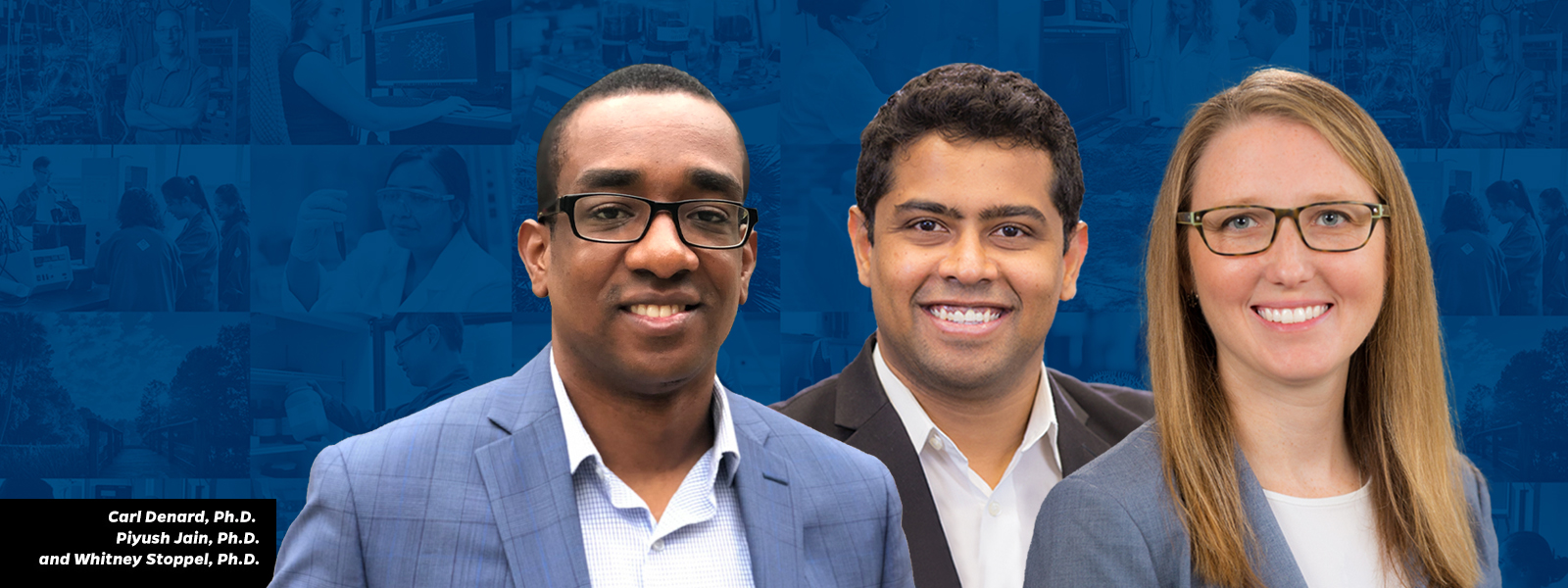Three faculty at the University of Florida Department of Chemical Engineering received the National Institutes of Health (NIH) National Institute of General Medical Sciences (NIGMS) R35 Early-Stage Maximizing Investigators’ Research Award (MIRA). Each researcher was awarded a five-year, $1.8+ million award. MIRA awards provide investigators with greater stability and flexibility in funding, while enhancing their ability to take on ambitious scientific projects and approach problems more creatively.
Carl Denard, Ph.D.
Assistant Professor
Dr. Denard will investigate enzymes that catalyze post-translational modifications (PTM), with a focus on refining, redefining, and reprogramming their substrate specificity.
“PTM-enzymes are ubiquitous in life and disease and are at the heart of many chemical biology, synthetic biology, and biotechnology applications,” said Dr. Denard.
By combining high throughput screening and protein engineering technologies, deep sequencing, and machine learning, the Denard lab will discover and evolve protein-based modulators that can reprogram the activity of disease-related PTM enzymes. An ideal therapeutic would be one that adjusts to a protease target only on disease-related pathways, a so-called substrate-selective modulator. The award also supports efforts to evolve therapeutic proteases with novel and bespoke specificities toward disease targets such as Alzheimer’s disease and Type-2 diabetes.
Piyush K. Jain, Ph.D.
Assistant Professor
Dr. Jain, the Shah Rising Star Term Professor, will build a program on the discovery of CRISPR/Cas systems with unique features and provide fundamental understanding of their mechanisms.
“Type V CRISPR/Cas 12 systems are emerging as next-generation tools for both genome editing and nucleic acid detection,” said Dr. Jain. “A vast majority of these systems are understudied and poorly characterized. A systematic study of these systems will enable novel tools for diagnosing and treating infectious diseases, cancers, and genetic disorders.”
Whitney L. Stoppel, Ph.D.
Assistant Professor
Dr. Stoppel, the William P. and Tracy Cirioli Term Professor, aims to develop novel biopolymers for applications in healthcare and medicine using genetic engineering.
“This support allows the Stoppel lab to bridge the gap between biomaterials, genetic engineering, and entomology,” said Dr. Stoppel.
The Stoppel lab aims to leverage natural biodiversity within silk fibroin producing insects while also intentionally, but carefully, engineering new biopolymers through genetic modification of these organisms.

